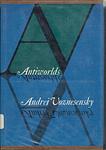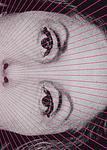The Greatest Russian, Brazilian "Modernist, Fiction" Books Since 1950
Click to learn how this list is calculated.
This list represents a comprehensive and trusted collection of the greatest books. Developed through a specialized algorithm, it brings together 300 'best of' book lists to form a definitive guide to the world's most acclaimed books. For those interested in how these books are chosen, additional details can be found on the rankings page.
Genres
Modernist literature is a category of books that emerged in the early 20th century, characterized by a break from traditional literary forms and a focus on individual experience and perception. Modernist writers experimented with language, form, and structure, often using stream-of-consciousness narration and fragmented storytelling to convey the complexity and ambiguity of modern life. Themes of alienation, disillusionment, and the search for meaning are common in modernist literature, which reflects the cultural and social upheavals of the time. Overall, modernist literature is a challenging and thought-provoking genre that continues to influence contemporary literature and culture.
Countries
Date Range
Reading Statistics
Click the button below to see how many of these books you've read!
Download
If you're interested in downloading this list as a CSV file for use in a spreadsheet application, you can easily do so by clicking the button below. Please note that to ensure a manageable file size and faster download, the CSV will include details for only the first 500 books.
Download-
1. The Hour of the Star by Clarice Lispector
"The Hour of the Star" is a poignant narrative that explores the life of Macabéa, a poor, unattractive, and naive typist living in the slums of Rio de Janeiro. The story is narrated by Rodrigo S.M., a sophisticated writer who struggles with how to accurately portray Macabéa's simple existence and her tragic fate. The novel delves into themes of identity, poverty, and the human condition, presenting a stark contrast between the lives of the rich and the poor, the educated and the ignorant, and the beautiful and the plain.
-
2. The Passion According to G.H. by Clarice Lispector
"The Passion According to G.H." is a philosophical novel that delves into the existential crisis of a wealthy Brazilian woman who, after killing a cockroach in her maid's room, experiences a profound metaphysical crisis. The narrative unfolds as a stream of consciousness that explores themes of identity, existence, and the nature of reality. The protagonist's journey forces her to confront her own humanity, the concept of nothingness, and the chaotic, interconnected nature of life. It's a profound and introspective exploration of the human condition and the meaning of existence.
-
3. Happy Moscow by Andrey Platonov
"Happy Moscow" is a satirical novel set in the Soviet Union during the height of Stalinist rule, following the life of a young woman, Moscow Chestnova, who is named after the capital city. Despite the harsh realities of life under an authoritarian regime, she maintains a positive and optimistic outlook, symbolizing the Soviet Union's propaganda that promoted an image of a happy and prosperous society. The novel, through its characters and their experiences, explores the paradoxes and contradictions of the Soviet society, challenging the official narrative of happiness and prosperity.
-
4. A Poem Without A Hero by Anna Akhmatova
The book is a profound reflection on the nature of memory, history, and the enduring impact of war. Through a series of interconnected poems, the work weaves together personal and collective experiences, focusing on the tumultuous events of the Russian Revolution and the subsequent Stalinist era. The poet grapples with the themes of loss, betrayal, and the search for redemption, while also paying homage to the artists and thinkers who suffered under repressive regimes. Rich in allusions and steeped in a complex interplay of voices and time periods, the narrative serves as a poignant meditation on the role of the poet and the power of poetry to bear witness to the tragedies of the past.
-
5. Antiworlds by Andrey Voznesensky
"Antiworlds" is a collection of poetry that provides a glimpse into the Soviet Union during the Cold War era. The poems are characterized by their avant-garde style, exploring themes of love, politics, and the human condition. The book includes the author's reflections on his travels around the world, his experiences with other cultures, and his perspective on the political climate of his time. The poems are both personal and universal, offering a unique perspective on the world during a period of intense political and social change.
-
6. The Complete Stories by Clarice Lispector
"The Complete Stories" is a collection that brings together the short fiction works of a renowned writer, known for her innovative and introspective style. The stories span through various phases of her career, offering a comprehensive look at the broad spectrum of human emotions and existential themes. Through her distinctive narrative voice, the author explores the inner lives of her characters, often delving into their complex psychological landscapes. The collection showcases her unique ability to blend the mundane with the philosophical, revealing the profound within the subtleties of everyday life.
Reading Statistics
Click the button below to see how many of these books you've read!
Download
If you're interested in downloading this list as a CSV file for use in a spreadsheet application, you can easily do so by clicking the button below. Please note that to ensure a manageable file size and faster download, the CSV will include details for only the first 500 books.
Download




